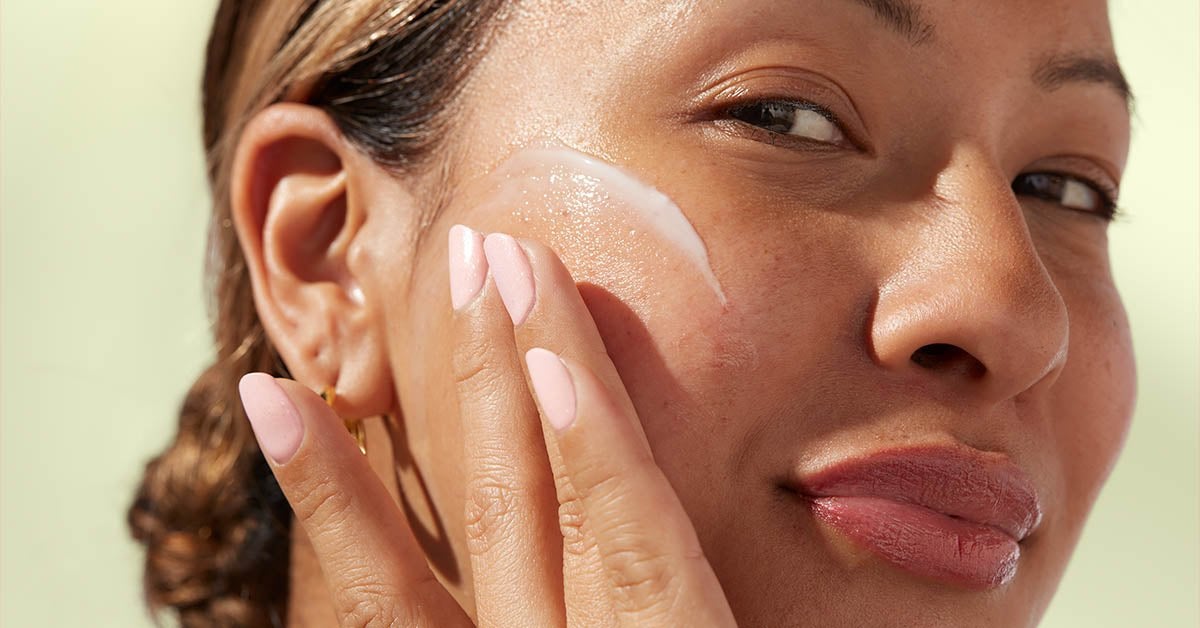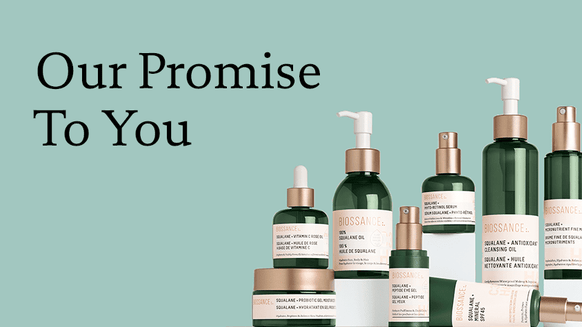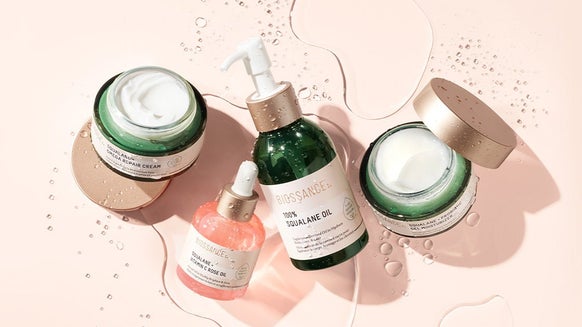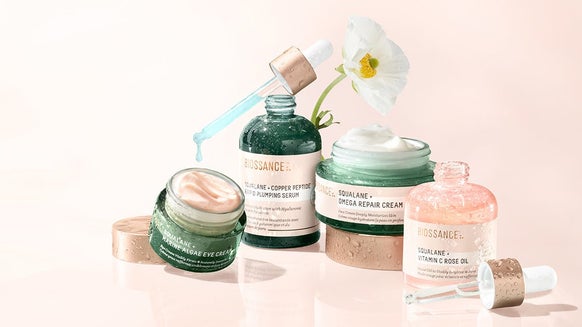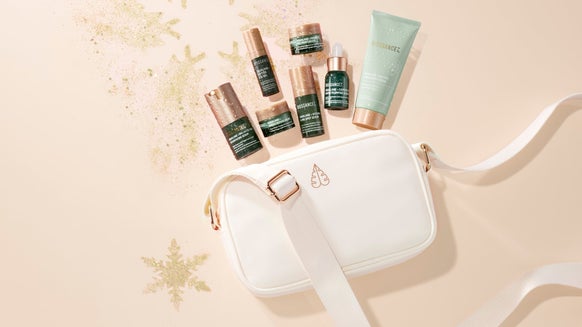Do you suffer from breakouts, reactivity, and red, irritated skin? A compromised skin microbiome may be to blame.Our bodies contain many natural colonies of microorganisms that live symbiotically with us. Each is made up of different microbiota that serve specific functions. Your gut microbiome, for example, aids in digestion, immune protection, and brain health. Meanwhile your oral microbiome protects teeth from decay while also aiding in digestion and immunity.
So what do all those microscopic organisms have to do with what you see in the mirror? Join us for a deep dive into the miracle that is your skin microbiome. We’ll explore the science behind its form and function, and explain how to restore your skin microbiome for healthy, clear, radiant skin.What is the Skin Microbiome?
Your skin microbiome is made up of trillions of microscopic bacteria, fungi, mites, yeasts, protazoa, and viruses that began colonizing the surface of your skin the second you were born. Your skin microbiome continued to grow from there, picking up new microorganisms from human interaction, your diet, and the environment.These trillions of microorganisms live throughout the uppermost layer of the epidermis — known as the stratum corneum — with some living right on the surface and others thriving deep inside your pores. Why is it important?
First and foremost, your skin microbiome is part of your body’s immune system, helping to keep pathogens in check. It’s crucial to the proper function of your moisture barrier, which helps your skin stay healthy, hydrated, pH-balanced, and protected from environmental stressors such as harmful bacteria.
Some of these microorganisms also signal the skin to produce lipids, such as ceramides, to strengthen the moisture barrier and lock in hydration, while another group produces powerful antimicrobial and antifungal compounds to ward off pathogens. Others eat the sebum in your pores, keeping your oil levels balanced, and still others digest dead skin cells to aid in natural exfoliation.Simply put, a richly diverse and healthy skin microbiome maintains balance in the skin, keeping inflammation at bay while maintaining optimal hydration and a slightly acidic pH, which also helps prevent the overgrowth of problem-causing bacteria.How Do You Know if Your Skin Microbiome is Compromised?
Everything we do affects the trillions of microbiota living atop our skin. From exposure to UV rays and pollution, to the food we eat, to the products we apply to our skin, it all impacts the balance of our skin microbiome. Signs your skin microbiome may be compromised can include:- Eczema
- Rosacea
- Acne
- Oily skin
- Irritation and reactivity
- Premature aging
If your skincare concerns include any of the above, giving your microbiome some extra TLC may help.5 Ways to Strengthen Your Skin Microbiome
1. Check Skincare Product Labels
Common skincare ingredients such as added fragrance and essential oils can kill beneficial bacteria, throwing your skin microbiome’s entire ecosystem out of whack. All Biossance products are made to help nurture a healthy skin microbiome. 2. Avoid Harsh Cleansers and Overcleansing
If squeaky-clean skin is your thing, you may be stripping your microbiome. While the surface of your skin naturally maintains a pH of about 5, soap’s pH is around 10. Thus soap and other alkaline skin products can damage your microbiota, putting you at risk for skin concerns.Both our Amino Aloe Gentle Cleanser and our Antioxidant Cleansing Oil use gentle cleansing compounds to remove every trace of makeup and impurities while promoting a healthy skin microbiome.
3. Use Probiotic Skincare
Using skincare that contains body-friendly bacteria can help promote diversity in your microbiota, nurturing a healthy skin microbiome. Historically, it’s been hard for skincare companies to incorporate live strains of beneficial bacteria into their products. That’s why our newly reformulated Probiotic Gel Moisturizer is such a game-changer.
Our scientists used sustainable, cutting-edge technology to encapsulate live probiotics within a shelf-stable formula. These tiny capsules burst when our formula hits your skin, flooding it with beneficial bacteria to help your skin microbiome recover and thrive.4. Eat a Balanced Diet
Research shows that a damaged gut microbiome influences your skin’s health. Scientists are just beginning to understand the gut-skin connection, but the gist of it is this: your gut and your skin are in constant communication. An unhealthy gut microbiome can therefore translate to a compromised skin microbiome. The solution: a balanced diet of colorful veggies, proteins, carbohydrates, and healthy fats.
5. Use Skincare Containing Sugarcane-Derived Squalane
Clinical studies have shown that the sugarcane-derived squalane used in every Biossance formula supports a healthy skin microbiome, increases microbiome diversity, and doesn’t disrupt microbiome stability. It does this by mimicking your body’s natural moisturizing factor — squalEne—helping to create an optimal environment for a healthy skin microbiome.Learn more about our innovative, sustainable squalane
As a lifestyle writer and journalist, I love sharing my passion for ocean conservation and obsession with clean beauty. I’ve tried almost every trend and ingredient, and Biossance’s science-backed formulas are the only ones that consistently calm my reactive skin and make it smoother, clearer, and healthier. I’m so excited to be on this journey of skincare innovation with Biossance, and to share it with you!
